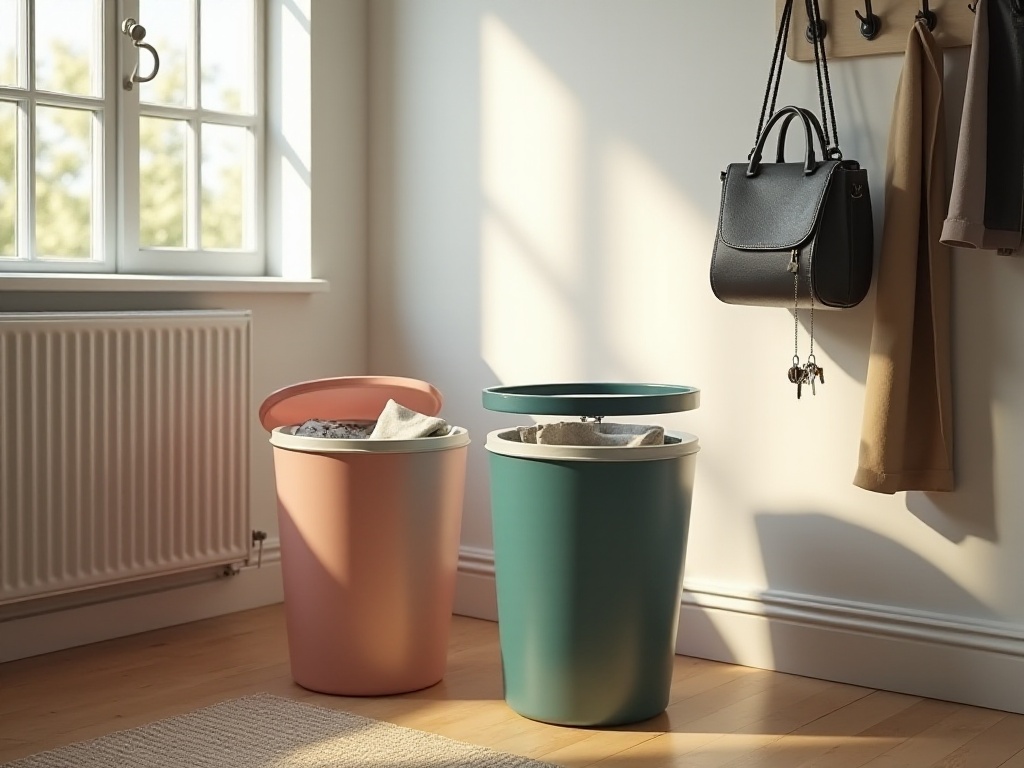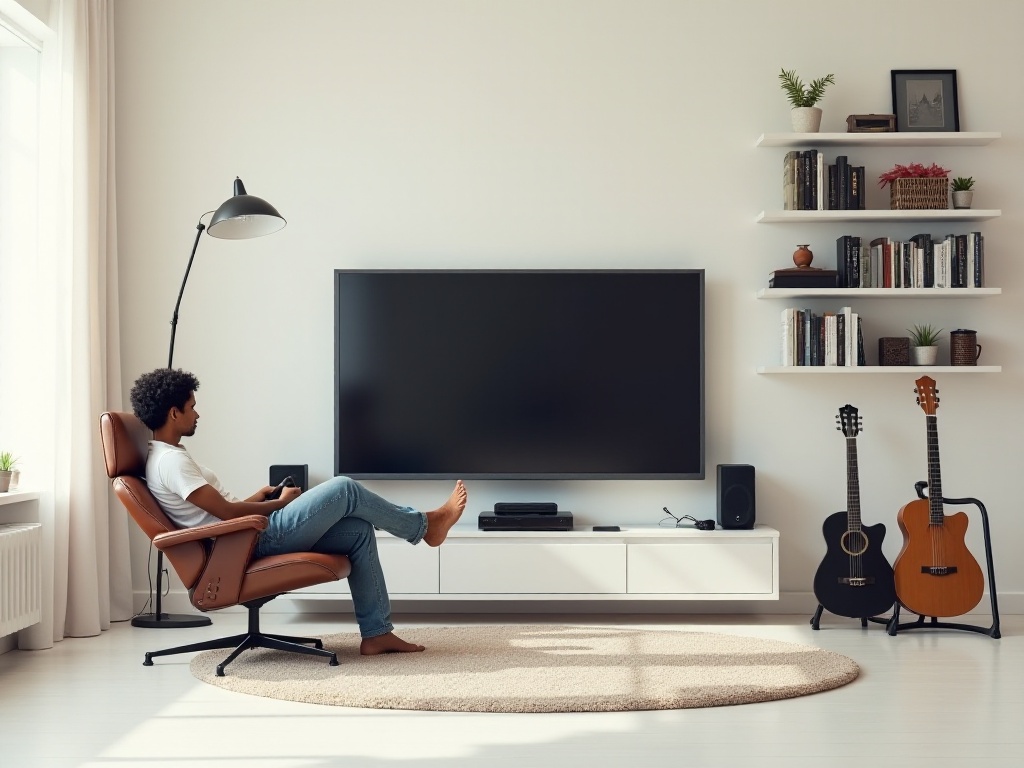Introduction
When staying home alone, do you often feel time passing incredibly slowly, as if each day lasts forever? Do you spend your days scrolling through your phone, binge-watching shows, and playing games, feeling like life has become monotonous? As someone who has enjoyed being a homebody since high school, I can confidently tell you: you can absolutely live an exciting life while staying at home! Years of experience being home-based have taught me that with careful planning, you can lead a fulfilling and happy life even without stepping outside.
Creating Daily Rituals
To be honest, I completely understand why many young people want to sleep in on weekends. After all, being controlled by alarm clocks during workdays is truly painful, so how can you not treat yourself to some extra sleep on weekends? However, when you lie in bed scrolling through your phone and suddenly realize it's noon, you might even feel more tired when you finally get up. Such weekends can easily lead to an inexplicable feeling of emptiness, as if time is slipping through your fingers like water.
After multiple attempts and adjustments, I've found a very effective method: placing the alarm clock far from the bed, and using a particularly loud one. You might think this is too harsh, but I can assure you it really works. When the alarm goes off, you have to get up and walk to the other end of the room to turn it off. During this process, your brain starts to wake up and blood circulation gradually increases. By the time you turn off the alarm, most of your drowsiness has already disappeared.
Moreover, I've discovered that waking up early is actually quite enjoyable. Morning sunlight filters through the curtains, the whole world is quiet, and even the air feels fresh. At this time, I like to make myself a cup of coffee or tea, sit on the balcony to read, or simply space out for a while. These moments of solitude are particularly precious, allowing me to plan my day and adjust my mood.
To make early rising more motivating, I've set up some small rewards for myself. For example, if I can wake up on time for a whole week, I allow myself to sleep in a bit on the weekend. Or after completing a week of early rising, I reward myself with a hearty brunch. These small incentives make it easier to maintain the habit.

Home Organization
When it comes to home life, perhaps the most headache-inducing problem is keeping rooms from becoming messy. Especially for those of us who spend a lot of time at home, various items seem to multiply on their own, suddenly filling every corner of the room.
The "Three-Box Rule" I've been practicing recently is truly a magical method. Prepare three storage boxes labeled "Discard," "Donate," and "Pending." The essence of this method is that it makes organizing more systematic and easier to make decisions.
Take my experience organizing my closet last month. I discovered I had accumulated 15 pieces of clothing that I had barely worn! Some were impulse purchases, some were bought because they were cheap, and others were gifts that didn't match my personal style. These clothes were taking up space in my closet and causing frustration every time I looked for something to wear. After using the three-box rule, I sorted these clothes: some good quality items were donated to community charities, some deformed or flawed ones were thrown away, and a small portion was placed in the pending box for a month of observation.
This process made me realize that hoarding is really a bad habit. It not only wastes money and space but also brings troubles to life. Now before buying anything, I seriously consider: Do I really need this? What role will it play in my life? If the answer is negative, I firmly decide not to buy it.
Besides the three-box rule, I've developed some practical storage tips. For example, folding all clothes into standing rectangles and arranging them in drawers like books. This not only saves space but also allows you to see all your clothes at a glance, eliminating the frustration of not finding what you want to wear.
For books and documents, I follow the "one in, one out" principle. Whenever I buy a new book or receive a new document, I must dispose of an old book or document. This helps maintain a relatively stable total quantity and avoid accumulating too many unused items.
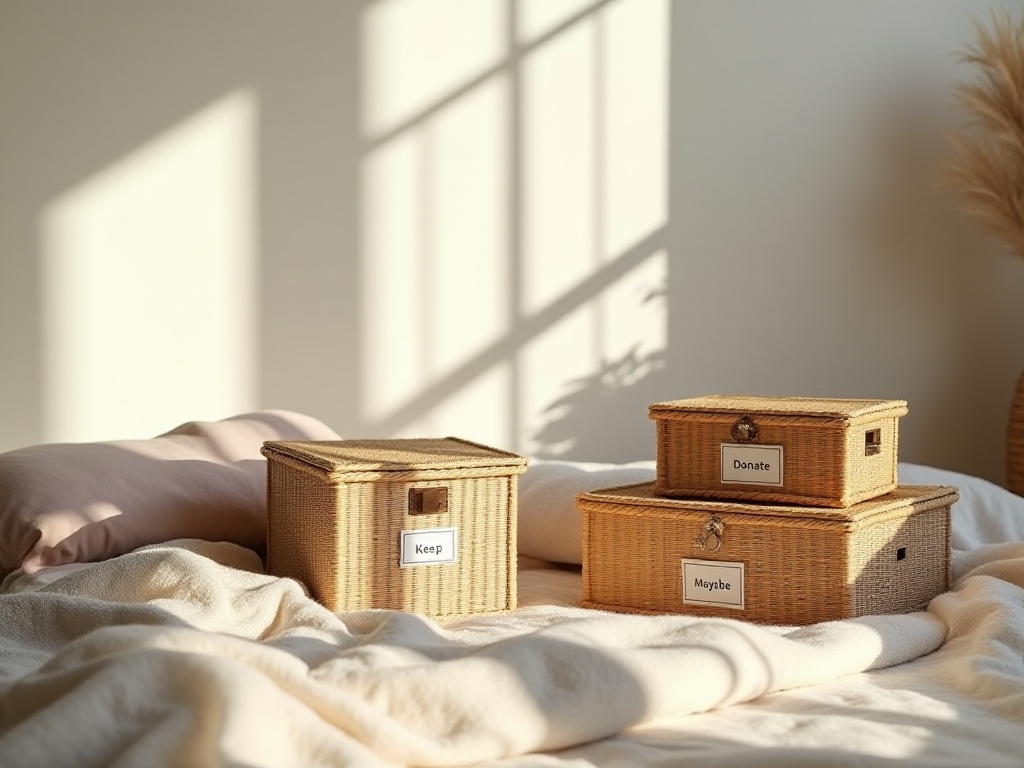
Advancing Cooking Skills
One of the most anticipated things about being at home is food. But many people get overwhelmed at the thought of cooking, feeling that buying, washing, cutting, and cooking ingredients is too troublesome. Actually, with some tricks, cooking can become both easy and fun.
I now use the "cook more once, portion and freeze" method. For example, last week I made a large pot of curry. When shopping at the supermarket, I buy enough ingredients at once, then spend an afternoon cooking. Although the initial preparation takes more work, after dividing it into four portions and freezing them, I don't have to worry about dinner for the next few days.
This method not only saves time and energy but also helps control food expenses. Buying ingredients in bulk is usually cheaper than buying small amounts, and home cooking is more economical than takeout. More importantly, you can completely control the freshness of ingredients and seasoning methods, eating more healthily.
Besides curry, I prepare other dishes suitable for freezing, such as braised pork, stewed beef, and various soups. This way, when I get home each day, I just need to heat up the frozen dishes and pair them with freshly cooked rice or noodles, and I can enjoy a hot dinner in 15 minutes.
To make cooking more interesting, I often try new recipes. There are many food bloggers sharing tutorials online now, from simple home dishes to complex international cuisine. Choosing a new dish to try each week not only improves cooking skills but also adds some surprises to life.
Sometimes failure is inevitable. I remember once trying to make French crepes, but the batter was too thin, and the crepes turned out soft and sticky, nothing like what I imagined. But these failures are also an important part of the learning process, and often bring unexpected gains. For example, although those failed crepes didn't look good, they surprisingly tasted nice, and I later developed an improved recipe.
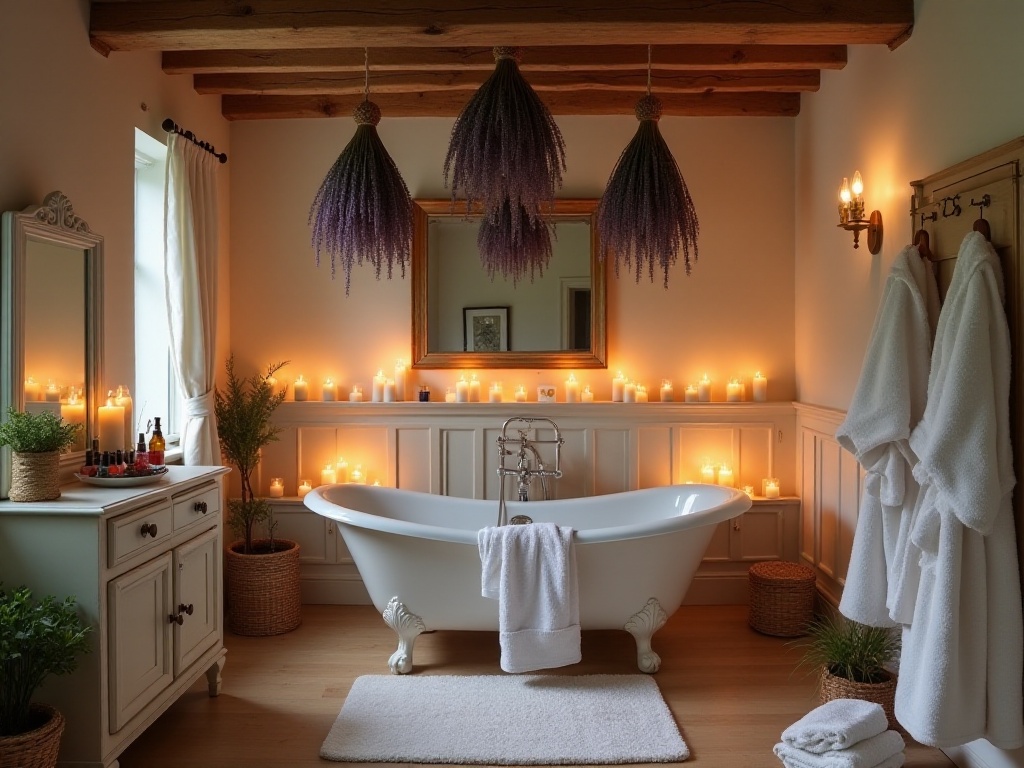
Indoor Entertainment
When many people think of staying home for entertainment, their first thought is watching dramas and variety shows. While these are indeed good ways to pass time, if you only passively receive entertainment content, it can become boring after a while. There are actually many more interesting and creative forms of entertainment waiting for us to explore.
Recently, I've become fascinated with handicrafts, especially embroidery. I remember when I first started, I bought a beginner's kit online, including embroidery hoops, needles, various colored threads, and some simple patterns. Every evening after dinner, I would schedule an hour of "creation time" for myself. Turn off the phone, turn on the desk lamp, and focus on the needlework.
It was indeed a bit clumsy at first, with crooked stitches, but with more practice, the progress became evident. Now I can complete some relatively complex patterns. What surprises me most is that when focusing on embroidery, my whole being enters a particularly peaceful state, as if worries and stress are temporarily set aside.
Besides embroidery, I've tried other crafts like origami, knitting, and pottery. Each craft has its unique charm and brings different rewards. Origami can train spatial thinking ability, knitting cultivates patience, and pottery can release creativity.
Interestingly, these seemingly simple craft activities actually have great benefits for physical and mental health. According to a 2024 study, people who spend 3 hours per week on craft activities showed 35% lower stress levels compared to the control group. Researchers believe this might be because craft activities allow people to enter a focused state, temporarily forget worries, and the sense of achievement from completing works can also increase happiness.
Additionally, I've discovered some interesting indoor exercise methods. For example, I set up a simple yoga area in a corner of my living room and do half an hour of yoga every morning. Yoga not only helps maintain body flexibility but also calms the mind. Sometimes when work pressure is high, doing a few simple yoga poses can improve my mood significantly.
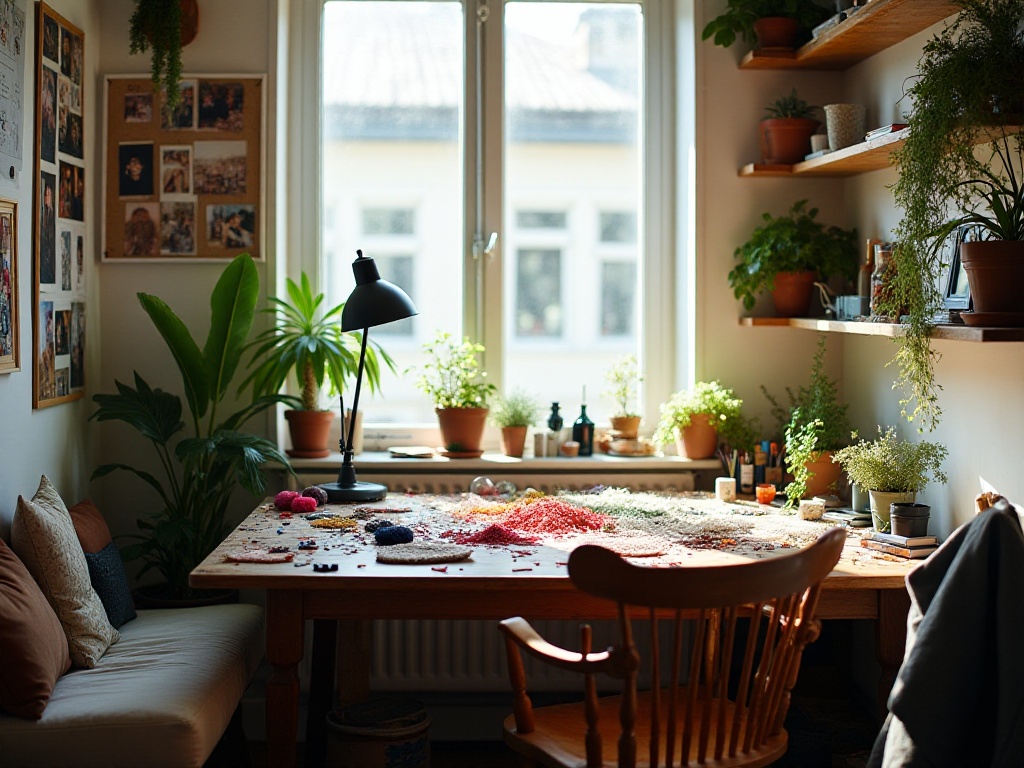
New Ways of Socializing
Many people think staying at home means reduced social activities and a lonely life. But in this technologically advanced era, we can completely maintain contact with friends through various means and even create new ways of socializing.
My friends and I now have a fixed time for video conferences every week. Usually on Friday nights or weekend afternoons, everyone makes their favorite drink, opens the video software, and chats about whatever they want. Sometimes we share recent interesting life events, sometimes discuss movies and books we've seen, and sometimes even play online games together.
These regular video gatherings not only allow us to stay updated with each other's recent situations but also create many interesting memories. I remember once, we had a sudden idea to hold a "World Food Festival." Everyone had to make a dish from a different country at home and share the cooking process and final product through video.
That day was really fun, watching everyone fumbling around cooking on screen, with constant laughter. Someone tried making pasta but cooked it too soft, someone made crooked sushi rolls, and someone turned their kitchen into a mess while making French desserts. Although the final products might not have been perfect, these shared experiences and joyful moments are what's most precious.
Besides regular video gatherings, we also organize some special online activities. For example, sometimes we watch movies together while commenting in the group chat; sometimes we hold online book clubs where each person chooses a chapter from a book to read aloud to everyone; sometimes we even organize online craft workshops to exchange techniques and experiences.
Although these online social activities can't completely replace face-to-face communication, they have their unique charm. They allow us to maintain contact with friends anytime, anywhere, breaking geographical limitations. Moreover, through this way, we actually cherish each gathering more and are more willing to share our daily life details.
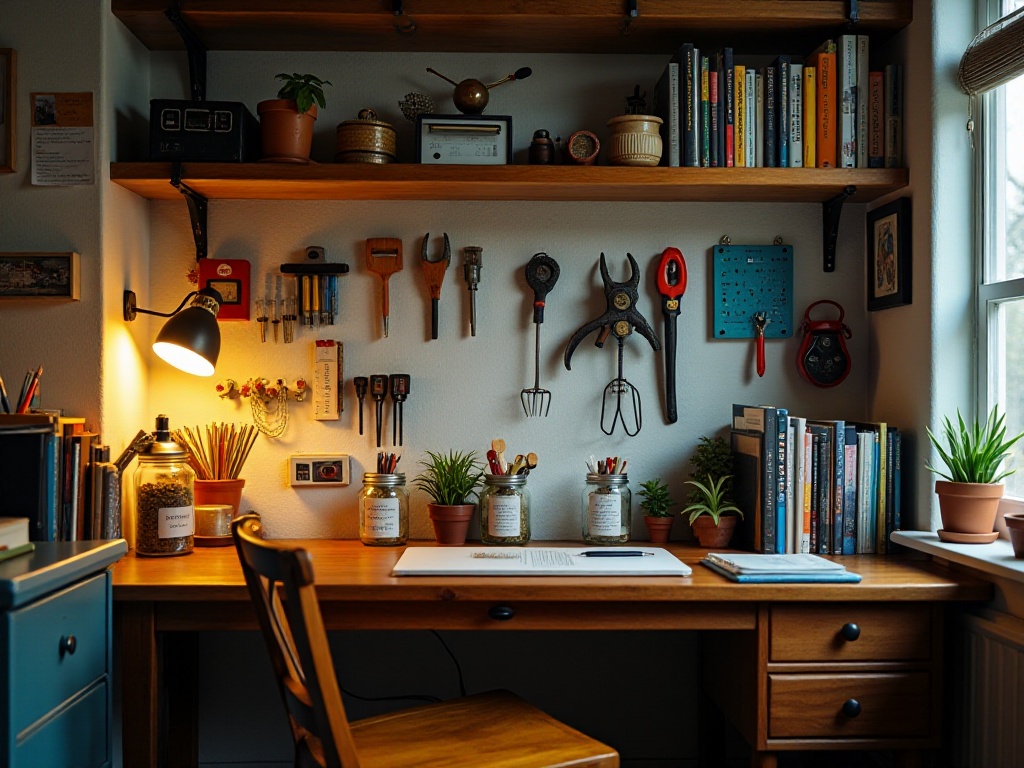
Conclusion
Looking back on these years of home-based life, I increasingly feel that staying home is not a passive choice but a lifestyle we can actively create. Through establishing life rituals, maintaining a tidy room, exploring food, developing hobbies, and maintaining social relationships, we can absolutely live an exciting life at home.
The key is finding a life rhythm that suits yourself, not being bound by external standards. Everyone is a unique individual and has the right to choose their preferred lifestyle. Home life can be rich and meaningful, depending on how you manage and enjoy it.
Remember, life's excitement doesn't depend on where you are, but how you treat each day. Even at home, as long as you maintain curiosity and creativity, each day can bring new surprises and gains. I hope everyone who chooses to stay home can find their own lifestyle and create their unique life story.






